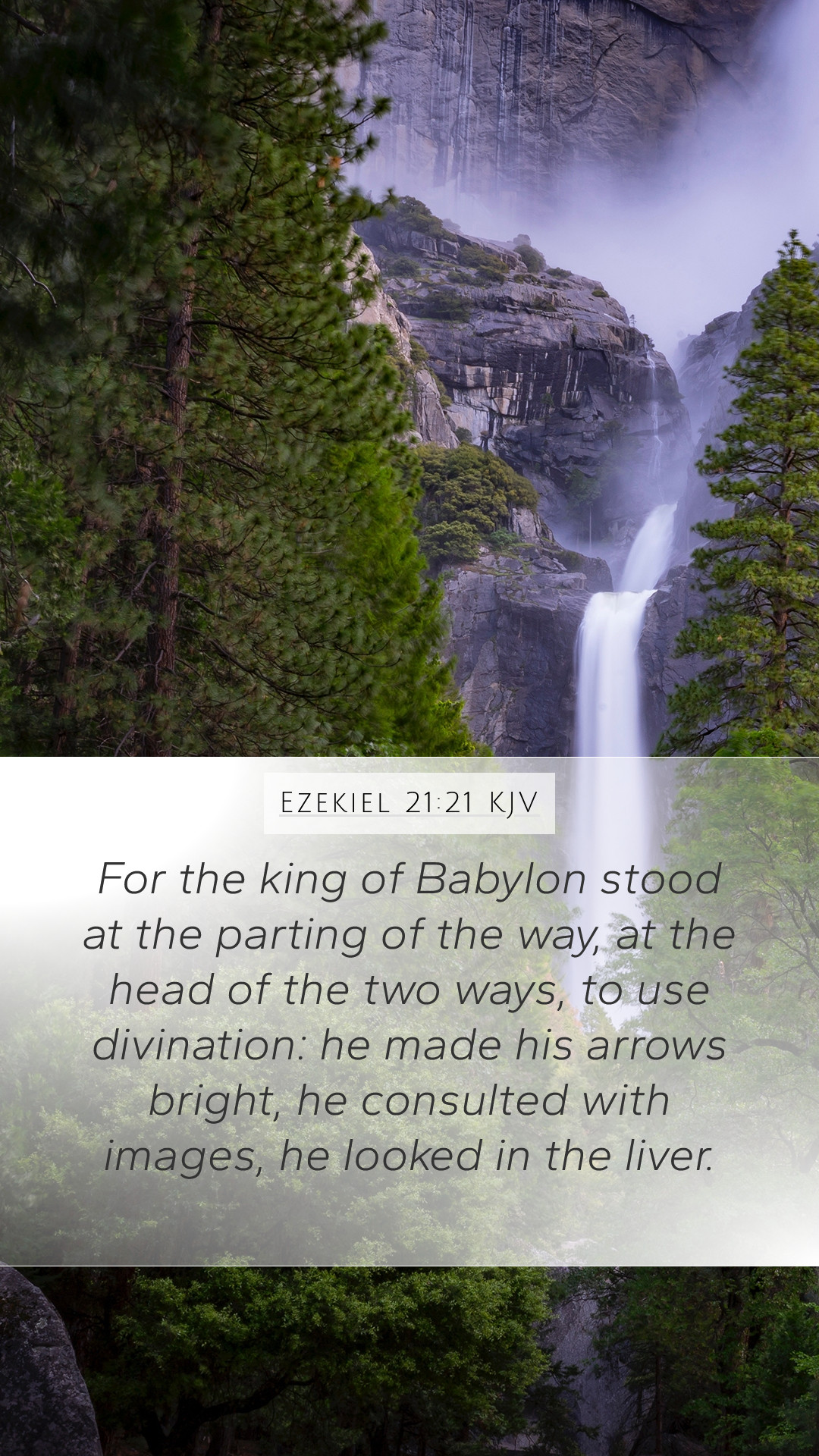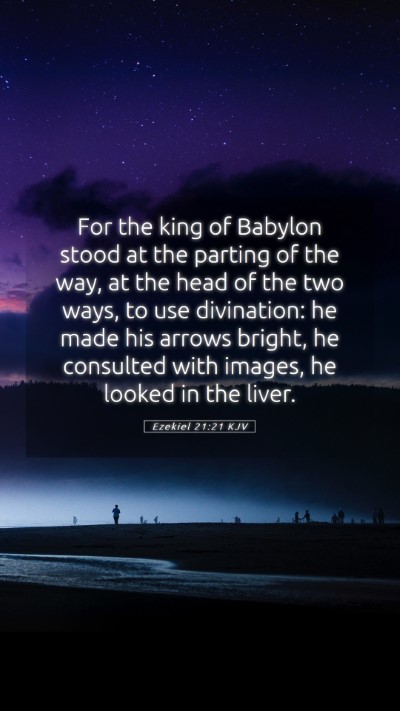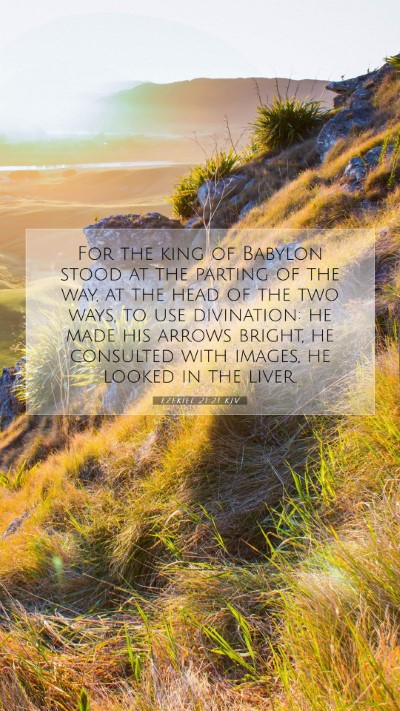Ezekiel 21:21 - Understanding the Significance
The verse Ezekiel 21:21 presents a powerful image of divine judgment and the actions of leaders based on the decisions they make. This deeper examination of the text sheds light on its meaning, interpretations, and implications for believers. Here’s a comprehensive breakdown based on insights from public domain commentaries by Matthew Henry, Albert Barnes, and Adam Clarke.
Contextual Background
Ezekiel is a prophetic book that deals with the themes of judgment and restoration. At the time of this prophecy, Jerusalem was facing imminent destruction due to the people's sins, and God was communicating His sovereign will through the prophet Ezekiel. Understanding this context is crucial for interpreting the specific verse in question.
Verse Analysis
Ezekiel 21:21 states, “For the king of Babylon stood at the parting of the way, at the fork of the two roads, to use divination; he shook the arrows, consulted the images, and looked at the liver.”
This verse describes the actions of Nebuchadnezzar, the king of Babylon, as he makes decisions regarding the siege of Jerusalem. The imagery of the “parting of the way” symbolizes the critical junction at which he must decide the fate of nations based on divination, a practice to seek guidance from the gods.
Commentary Insights
-
Matthew Henry's Commentary:
Henry emphasizes the futility of relying on divination. He notes that while Nebuchadnezzar sought guidance through such means, he was ultimately an instrument of God's will, illustrating that God is sovereign over the affairs of nations. This serves as a warning against placing faith in human guidance over divine direction.
-
Albert Barnes' Notes:
Barnes highlights the significance of the king's actions, showing how not only Nebuchadnezzar but also the people of Israel were thus caught in the course of divine judgment. His radical decision symbolizes the inevitable consequences of Judah's unfaithfulness to God. This verse underscores the importance of acknowledging God’s authority in even the most critical decisions of life.
-
Adam Clarke’s Commentary:
Clarke interprets this verse with an emphasis on the prophetic implications of the king’s decisions. He notes that the choices made at this crossroads are laden with severe consequences for the people of Jerusalem, reflecting the broader theme of divine retribution and the serious implications of straying from God’s commands.
Theological Implications
This verse reveals critical theological truths regarding the sovereignty of God and human response. It illustrates that leaders, even those who do not follow God, are under His divine plan and control. This understanding invites reflection on how human actions align with God’s will and the unfolding of His purposes in history.
Practical Applications
For today’s believer, Ezekiel 21:21 serves as a reminder to seek divine guidance in decision-making processes. Here are some application points:
- Prioritize prayer and scripture in decision-making.
- Recognize the sovereignty of God in national and personal matters.
- Acknowledge that turning away from God can lead to dire consequences.
- Engage in discussions within Bible study groups about the role of human agency under divine sovereignty.
Cross References
To further explore the themes of this verse, consider the following related scriptures:
- Jeremiah 10:23: "I know, O LORD, that a man’s life is not his own; it is not for man to direct his steps."
- Proverbs 16:9: "In their hearts humans plan their course, but the LORD establishes their steps."
- Isaiah 45:7: "I form the light and create darkness, I bring prosperity and create disaster; I, the LORD, do all these things."
Conclusion
The meanings of Bible verses such as Ezekiel 21:21 are deep and multifaceted. They require careful consideration and study, drawing from rich commentaries and scholarly works. The verse serves as a profound reminder of God’s overarching authority and the significance of our decisions in the tapestry of His will. Engaging in Bible study resources and tools can help illuminate these themes and provide a deeper understanding of scripture.
In summary, the interpretations of Ezekiel 21:21 not only provide insights into the historical context of the Babylonian siege but also offer practical guidance for contemporary believers engaging with the complexities of faith and decision-making.


